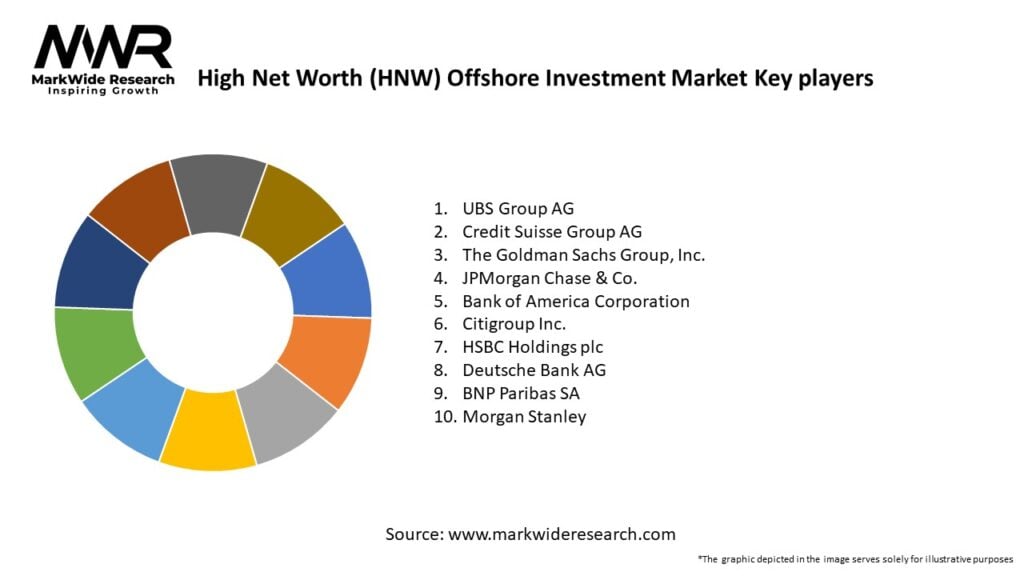Just How Offshore Financial Investment Works: A Step-by-Step Malfunction for Capitalists
Offshore financial investment offers an organized path for capitalists looking for to maximize their economic methods while leveraging international chances. The process begins with the mindful selection of a jurisdiction that straightens with a capitalist's goals, followed by the establishment of an account with a trustworthy offshore institution.

Understanding Offshore Financial Investment
Comprehending offshore financial investment includes recognizing the critical advantages it supplies to companies and individuals seeking to maximize their financial portfolios. Offshore investments typically describe assets held in a foreign territory, typically defined by beneficial tax programs, regulatory atmospheres, and personal privacy protections. The main purpose behind such investments is to improve resources development, risk, and diversification monitoring.

Capitalists can access a wide range of monetary instruments with overseas locations, consisting of supplies, bonds, shared funds, and realty. These financial investments are often structured to follow local laws while offering versatility in terms of asset allotment. Additionally, offshore investment strategies can enable businesses and people to hedge versus residential market volatility and geopolitical dangers.
One more secret aspect of offshore investment is the possibility for boosted privacy. Many overseas territories have stringent privacy legislations, which can safeguard a financier's financial details from public disclosure. It is critical for financiers to stay compliant with their home country's tax obligation guidelines and reporting needs, as non-compliance can lead to serious penalties. A detailed understanding of both the responsibilities and benefits linked with offshore investments is crucial for notified decision-making.
Benefits of Offshore Spending
Financiers often turn to offshore spending for its various benefits, including tax efficiency, property defense, and portfolio diversity. One of the main advantages is the potential for tax optimization. Numerous overseas territories use positive tax obligation routines, enabling financiers to legally lower their tax obligation liabilities and take full advantage of returns on their financial investments.
In addition, overseas accounts can provide a layer of possession defense. Offshore Investment. By placing assets in politically stable jurisdictions with strong privacy legislations, financiers can secure their riches from possible lawful insurance claims, financial institutions, or financial instability in their home nations. This kind of defense is specifically interesting high-net-worth people and business owners encountering lawsuits dangers
In addition, overseas investing assists in profile diversification. Accessing worldwide markets allows investors to explore opportunities in numerous property courses, including realty, stocks, and bonds, which might not be readily available locally. This diversity can minimize overall portfolio threat and improve prospective returns.
Inevitably, the benefits of offshore investing are engaging for those seeking to enhance their financial strategies. It is crucial for capitalists to completely recognize the ramifications and regulations associated with overseas investments to make certain compliance and accomplish their financial objectives.
Selecting the Right Territory
Choosing the proper jurisdiction for overseas investing is a vital choice that can substantially influence a financier's monetary technique. The appropriate jurisdiction can offer different advantages, including desirable tax frameworks, asset security regulations, and regulative settings that align with a financier's objectives.
When selecting a jurisdiction, take into consideration factors such as the political stability and financial health of the country, as these aspects can influence financial investment safety and security and returns. In addition, the legal framework bordering international investments should be reviewed to make sure conformity and security of properties. Countries known for durable legal systems and transparency, like Singapore or Switzerland, frequently impart greater confidence amongst investors.
Additionally, assess the tax effects of the territory. Some nations provide appealing tax obligation motivations, while others might impose stringent reporting demands. Recognizing these nuances can assist in maximizing tax liabilities.

Steps to Establish Up an Offshore Account
Establishing an offshore account involves a collection of methodical actions that make sure conformity and protection. The very first step is selecting a credible overseas economic institution, which need to be accredited and regulated in its jurisdiction. Conduct complete study to examine the establishment's credibility, solutions provided, and client evaluations.
Following, collect the needed documents, which typically includes recognition, proof of address, and information concerning the source of funds. Various jurisdictions may have varying demands, so it is essential to validate what is needed.
Once the documentation is prepared, start the application procedure. This might entail submitting forms on-line or personally, relying on the establishment's procedures. Be planned for a due persistance procedure where the financial institution will confirm your identity and evaluate any possible dangers linked with your Resources account.
After authorization, you will certainly get your account details, enabling you to money your offshore account. It is suggested to keep clear documents of all transactions and follow tax guidelines in your house country. Developing the account properly find more information establishes the structure for efficient offshore financial investment administration in the future.
Taking Care Of and Monitoring Your Investments
Once an offshore account is effectively established up, the emphasis changes to handling and checking your financial investments properly. This essential stage entails a systematic strategy to ensure your assets straighten with your monetary objectives and take the chance of resistance.
Begin by establishing a clear investment strategy that describes your goals, whether they are capital preservation, income generation, or development. Routinely evaluate your profile's performance versus these standards to examine whether modifications are required. Using monetary monitoring devices and systems can help with real-time tracking of your investments, offering insights into market fads and possession allowance.
Engaging with your overseas economic advisor is essential. They can provide competence and guidance, assisting you navigate complicated international markets and governing settings. Set up regular testimonials to discuss performance, analyze market problems, and recalibrate your approach as needed.
Furthermore, continue to be notified regarding geopolitical developments and financial indications that might influence your financial investments. This proactive technique allows you to respond quickly to transforming conditions, ensuring your overseas profile remains robust and straightened with your investment goals. Inevitably, persistent monitoring and continuous tracking are essential for maximizing the benefits of your offshore investment technique.
Final Thought
Finally, overseas financial investment offers a calculated method for profile diversity and threat monitoring. By involving and picking an ideal territory with reliable banks, investors can navigate the complexities of global markets properly. The organized strategy detailed makes sure that financiers are fully equipped Get More Information to optimize returns while adhering to lawful structures. Continued monitoring and collaboration with economic experts stay vital for preserving a nimble financial investment approach in an ever-evolving worldwide landscape.
Offshore financial investment presents an organized pathway for capitalists seeking to maximize their monetary strategies while leveraging international opportunities.Recognizing offshore financial investment includes identifying the strategic advantages it provides to companies and people looking for to enhance their financial profiles. Offshore investments commonly refer to properties held in a foreign jurisdiction, often defined by favorable tax obligation regimes, regulatory settings, and privacy protections. Additionally, overseas investment methods can make it possible for businesses and people to hedge against domestic market volatility and geopolitical dangers.
